SPEAKERS
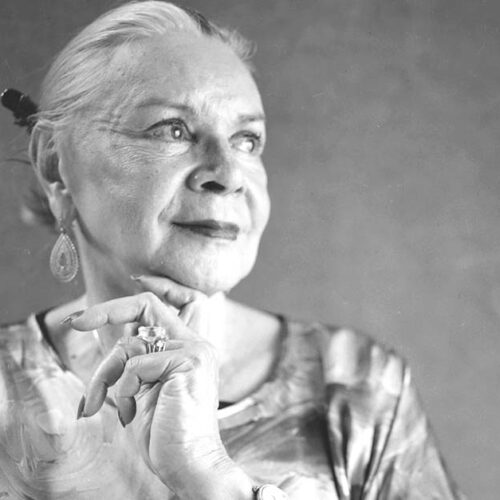
Dr Lois Peeler AM
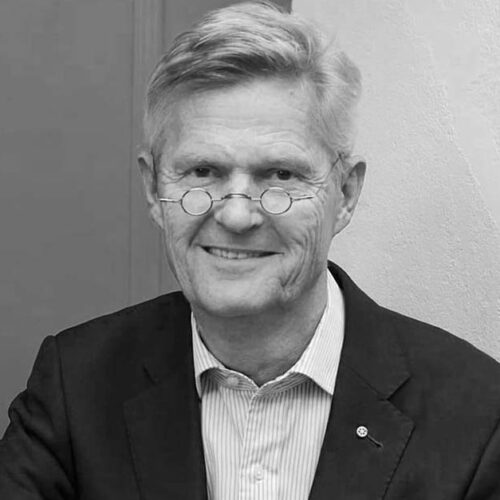
Holger Knaack
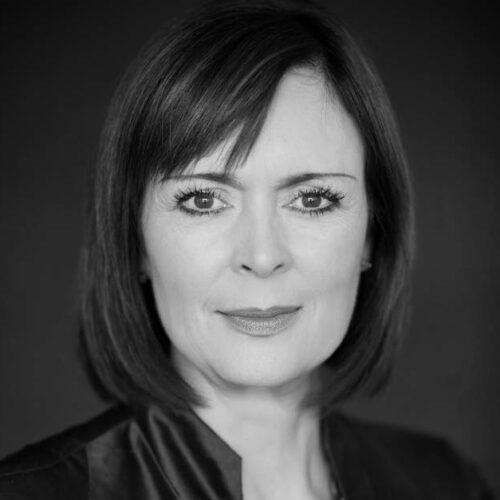
Marion Macleod
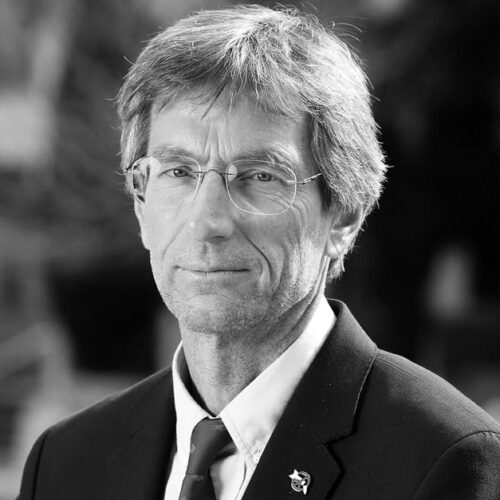
Associate Professor Tilman Ruff AO
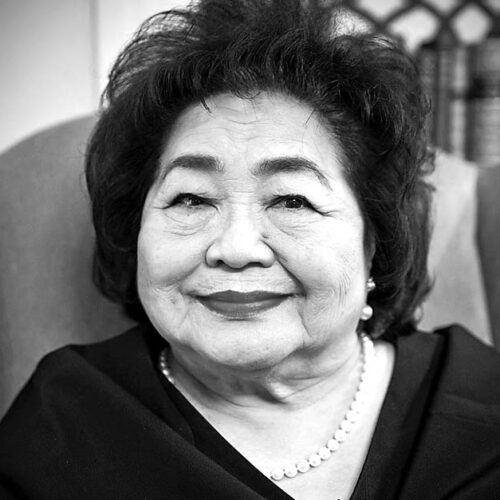
Setsuko Thurlow
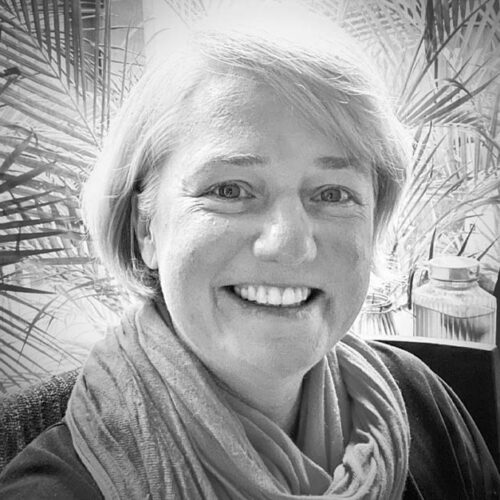
Dr Emma Leslie AM
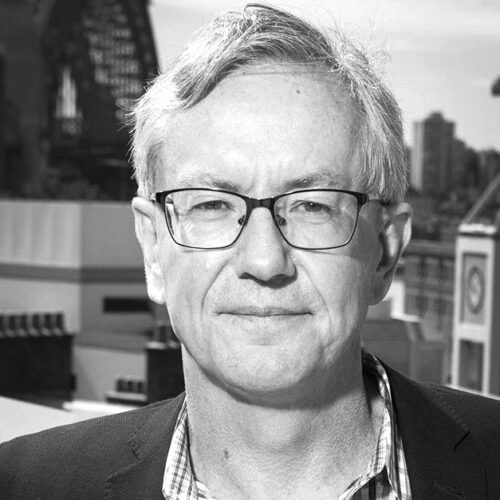
Robert McGuirk
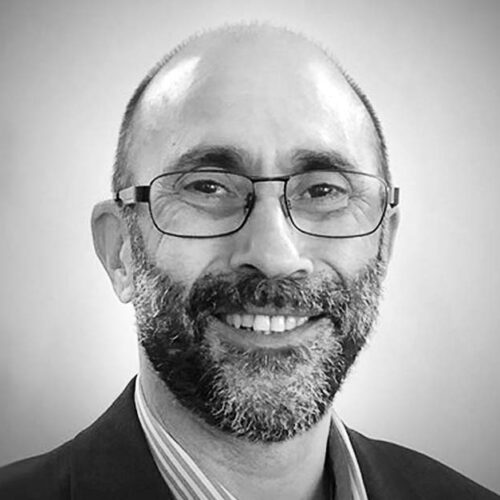
Ian Hamm
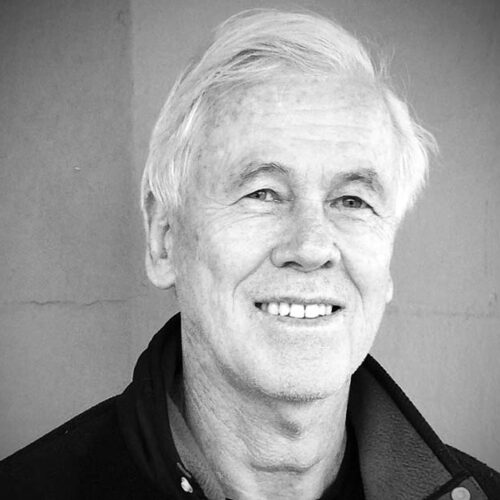
Neville White

Nerita Waight
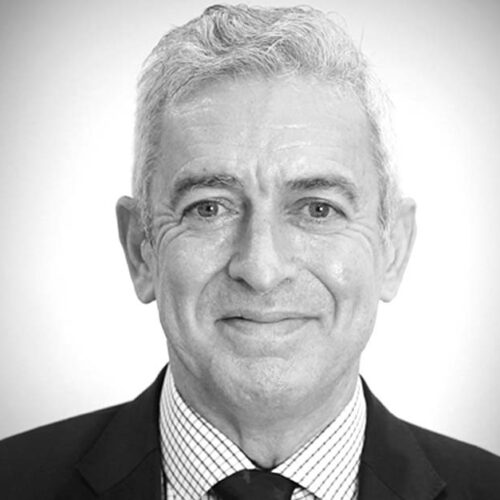
Charles Allen
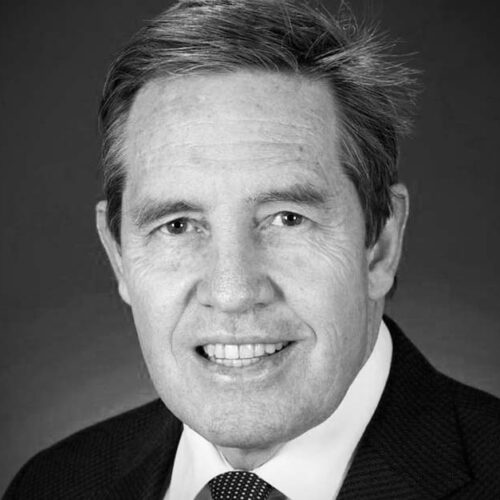
Tony Stuart
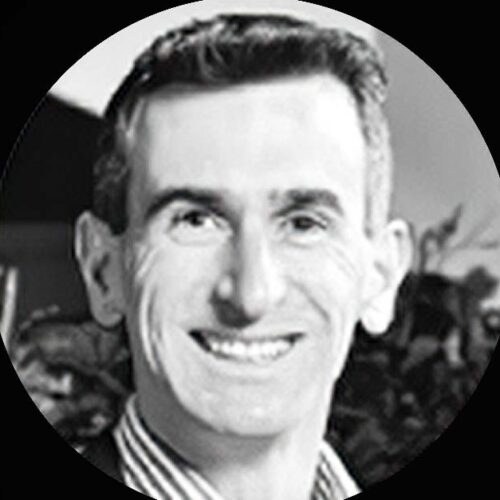
Michael Hitz
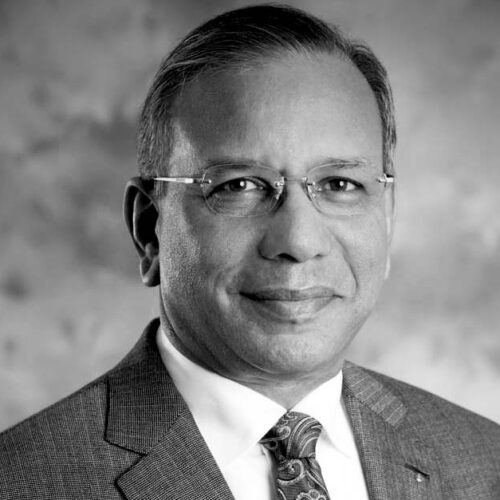
Ravi Ravindran
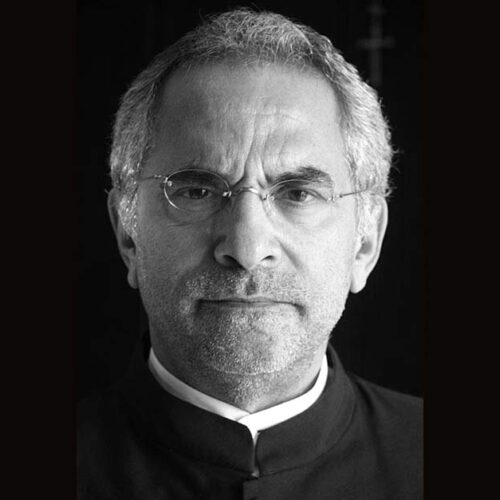
José Ramos-Horta AC
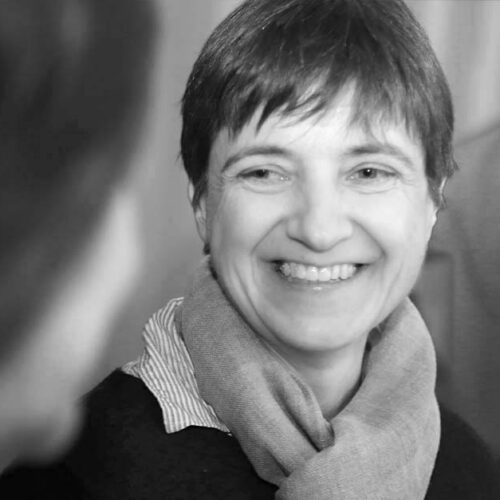
Natascha Hryckow
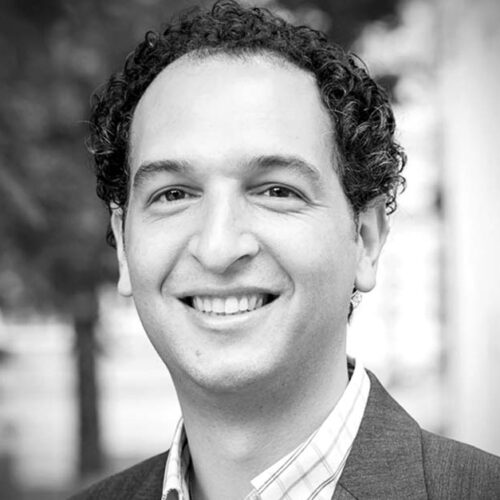
Dr Jonathan Kolieb
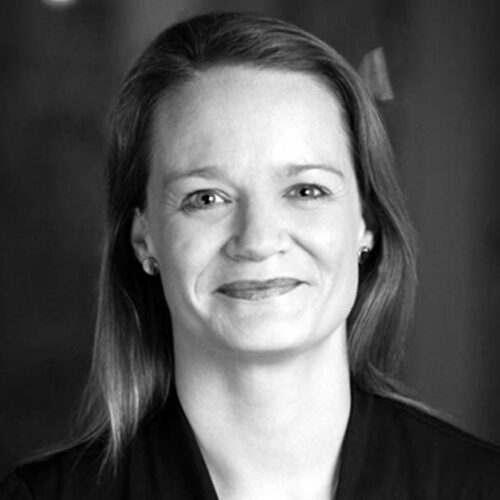
Kylie Porter
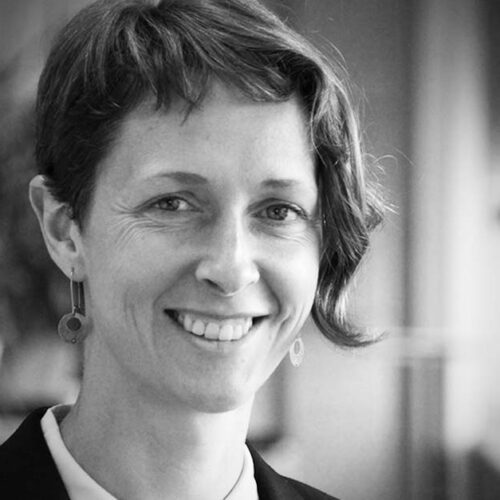
Keren Adams
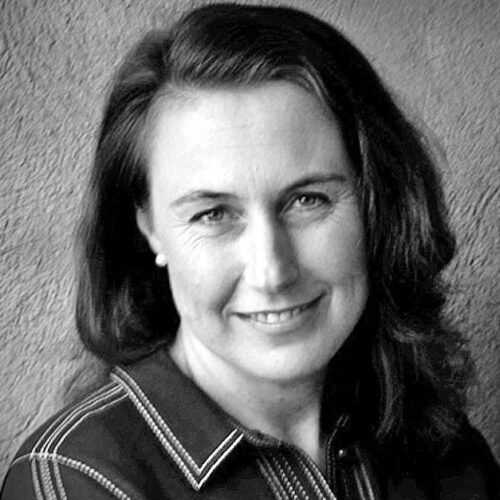
A/Prof Shelley Marshall

Dr Phoebe Wynn-Pope
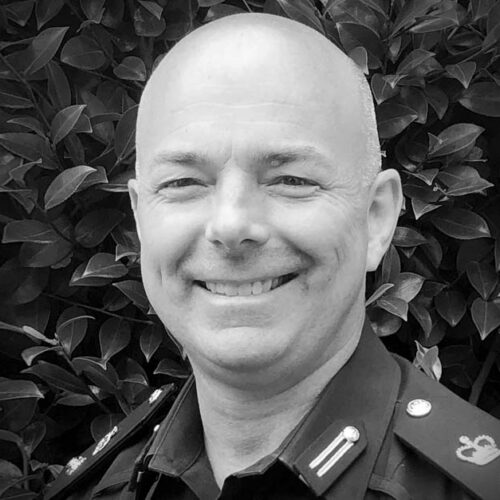
Superintendent
Andrew Miles
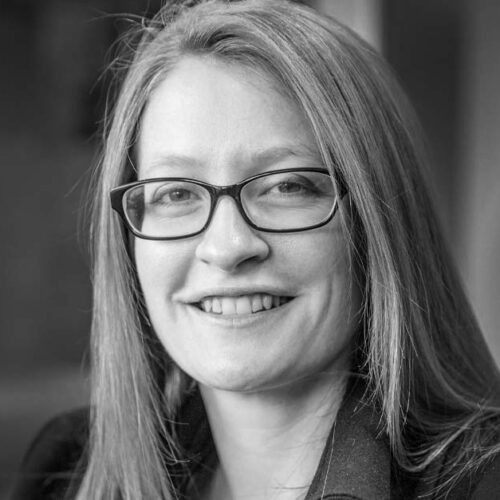
Associate Professor
Troy McEwan
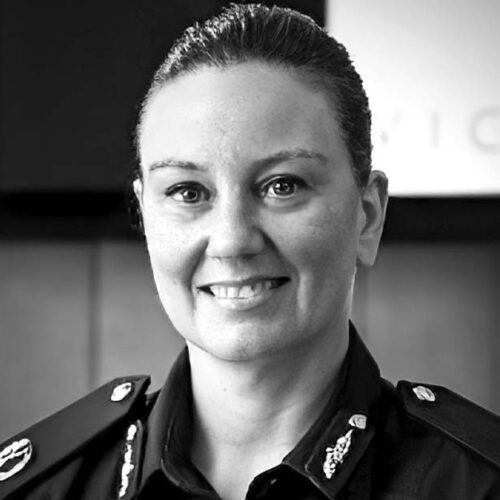
Assistant Commissioner
Lauren Callaway
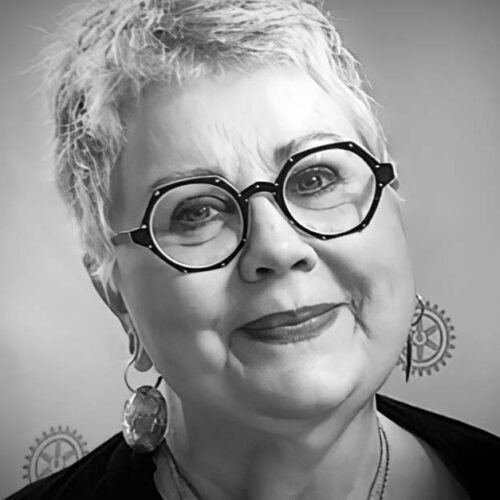
Dorothy Gilmour

Kirsten Sayers
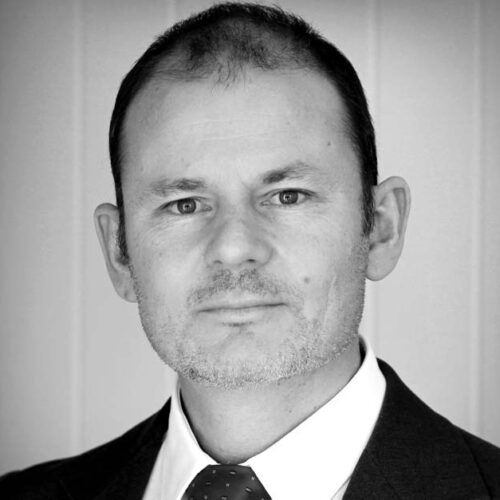
Barnaby Caddy
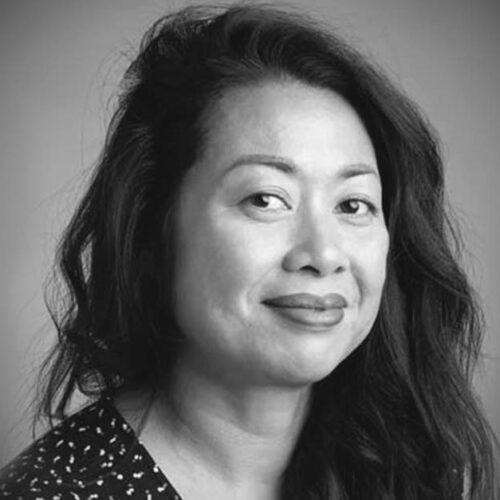
Anggia Burchill
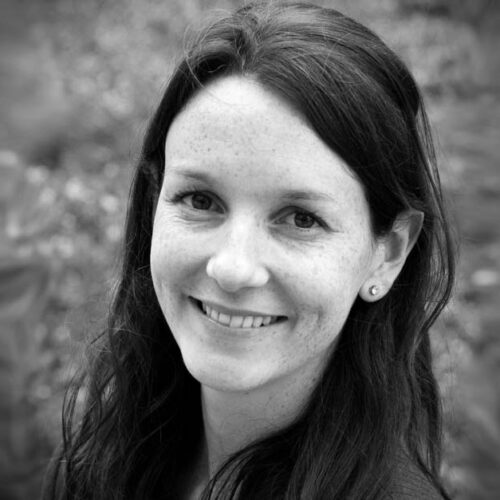
Jessica Trijsburg
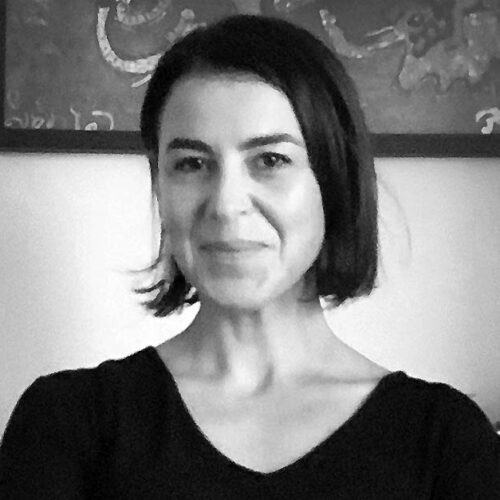
Dr Tania Miletic
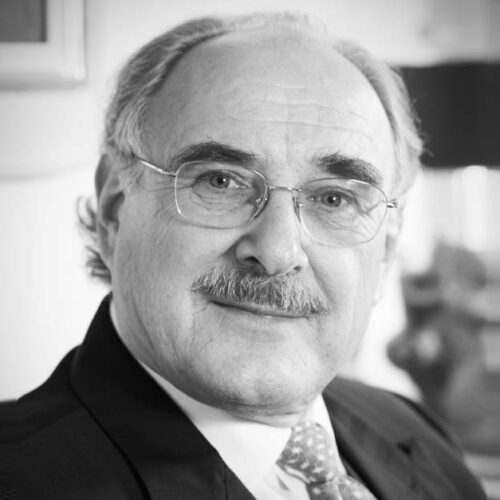
Dr. Walter B. Gyger
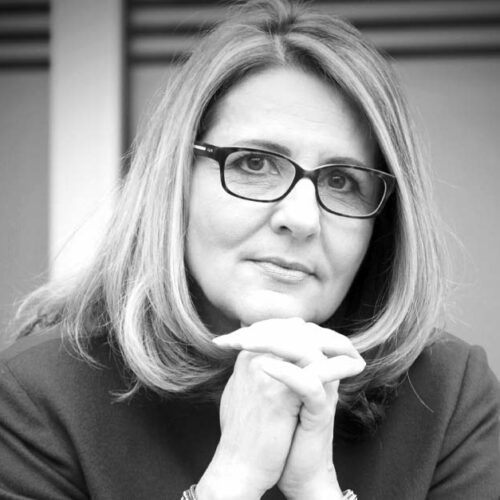
Sibylle Rupprecht
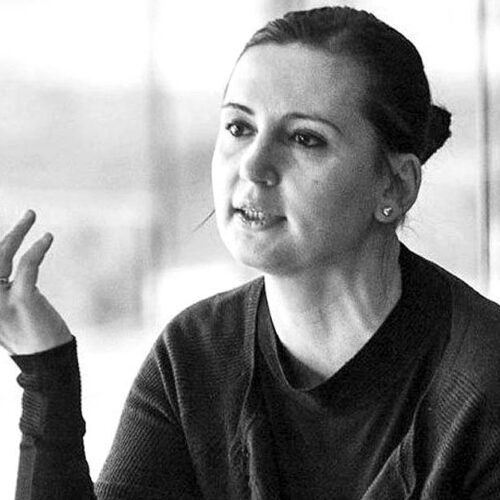
Natalia Sineaeva-Pankowska
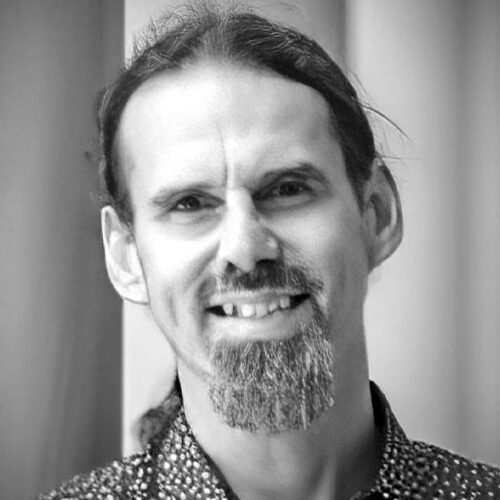
Assoc Prof Morgan Brigg
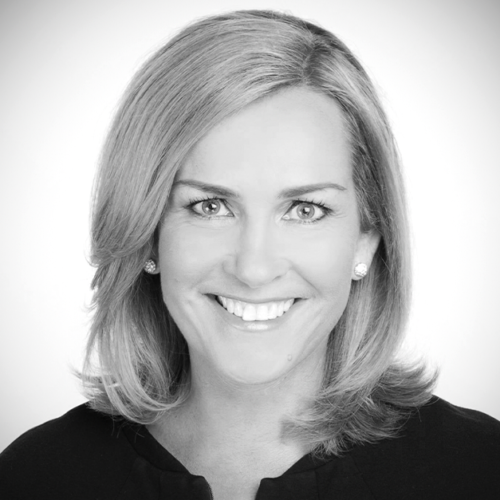
Ali Moore
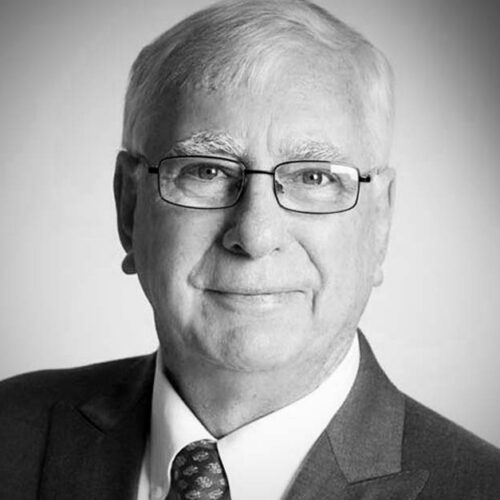
Ian H.S. Riseley OAM
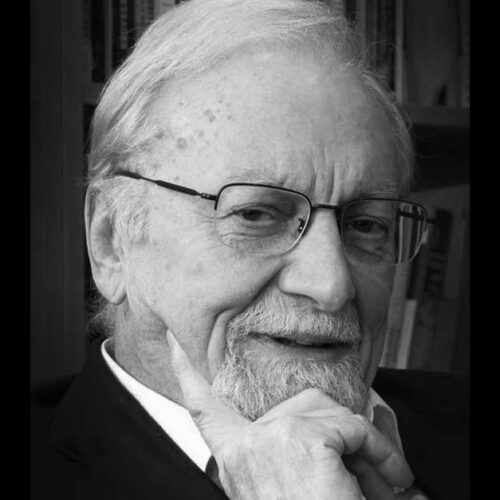
Gareth Evans AC
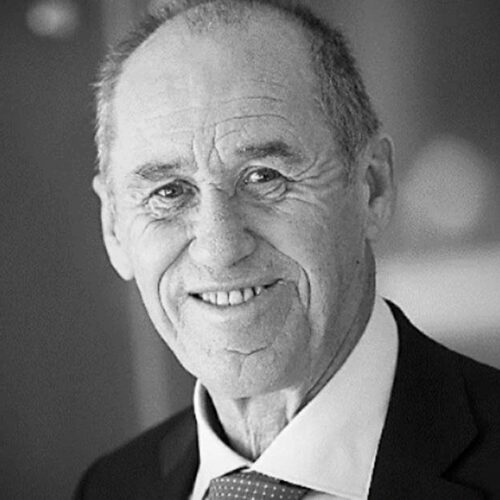
Steve Killelea AM

Welcome to Country
Dr Lois Peeler AM
Lois Peeler is of Yorta Yorta and Wiradjuri heritage by her mother and Wurundjeri Heritage by her father. She is the Executive Director and Principal of Worawa Aboriginal College.
Lois’ up-bringing included family life on the Cummeragunja Aboriginal Reserve and the river flats of Mooroopna where activism for improved conditions for Aboriginal people was deeply embedded. She grew up surrounded by strong men and women who, based on their lived experience, led the fight for equal rights for Aboriginal people to education, healthcare, housing, legal services and social justice.
Lois has had a diverse career in the music industry, public service, community development, social activism, tourism, community development and Aboriginal education. One of the original members of The Sapphires, an all-girl singing group from the 1960s, she is also acknowledged as Australia’s first Aboriginal model and TV presenter.
A dynamic contributor to Aboriginal affairs Lois has held many positions in the government, community, corporate and philanthropic sectors. Following a successful career as a fashion model, and a stint of living overseas, Lois began her career in the community sector as Assistant Director of the Aborigines Advancement League leading to senior positions in the State and Federal public service (spanning 16 years in public sector Aboriginal Affairs).
Lois entered the public service as an Aboriginal Liaison Officer with the Department of Conservation, Forests and Lands where she managed the first Aboriginal Ranger Program. She became Director of the Aboriginal Employment Unit within the Office of Merit Protection of the Victorian Public Service Board where she had responsibility for a number of staff and managed implementation of the Aboriginal Employment Strategy across the Public Service.
Upon departure from the VPS, Lois became the elected Chair of the Binjirru Regional Council of the Aboriginal and Torres Strait Islander Commission (ATSIC) responsible for the eastern region from Wodonga to Cann River in Gippsland. She held the community elected position of Chair for three consecutive terms. She was appointed as a Director of the Indigenous Land Corporation, Land Enterprise Australia and to the board of Parks Victoria.
Lois headed Aboriginal Tourism Australia for more than a decade leading Indigenous tourism development. She was a member of the Aboriginal Advisory Committee to SOCOG for the Sydney Games and co-authored the Respecting our Culture (ROC) tourism accreditation program for the Australian Tourism industry. The ROC program continues to be in use across the tourism industry today. Lois is author of Aboriginal Oral History of the Flats and co-author of Yorta Yorta Language Heritage.
Lois was a founding member of the national Federation of Aboriginal Women and held the position of secretary. She was also a founding member of Koorie Women Mean Business and appointed to the Victorian Women’s Advisory Committee. She was a trustee of the Fairley Foundation and appointed to a term as Acting Commissioner for Aboriginal Children and Young People (Victoria).
In 2003 Lois received The Centenary Medal for her work in tourism. In 2014 she was made a Member (AM) in the General Division of the Order of Australia for her significant service to the Indigenous community as an educator, advocate and role model. In 2017 she was Senior Victorian of the Year and in the same year she was awarded a Doctor of Social Science, Honoris Causa, by RMIT University. In 2020 she was inducted into the Victorian Women’s Honour Roll. Lois is currently Chair of the Department of Justice Eastern Metropolitan Regional Aboriginal Justice Advisory Committee (RAJAC), a member of the Aboriginal Justice Caucus and statewide Aboriginal Justice Forum and Chair of the Aboriginal Independent Prison Visitors Program.
Lois has a strong commitment to the education and preservation of Victorian Aboriginal history and culture. She has delivered an annual Oration for both the University of Melbourne (2020) and Swinburne University (2020) where her respective topics were on Aboriginal Oral History and Enduring Legacies. In her current role as Principal of Victoria’s only Aboriginal school she has established a Dreaming Trail, History Walk and is currently involved in the development of an Aboriginal Resource Centre and Professional Learning Institute to focus on Victorian Aboriginal history and culture and achievements. Lois was recently appointed to the Museum Victoria Aboriginal Cultural Heritage Advisory Committee.

Rotary International Welcome
Holger Knaack
International President
Rotary Club of Rotary Club of Herzogtum Lauenburg-Mölln, Germany
Knaack is the CEO of Knaack KG, a real estate company. He was previously a partner and general manager of Knaack Enterprises, a 125-year-old family business.
He is a founding member of the Civic Foundation of the City of Ratzeburg and served as president of the Golf-Club Gut Grambek. Knaack is also the founder and chair of the Karl Adam Foundation.
A Rotary member since 1992, Knaack has served Rotary as treasurer, director, moderator, member and chair of several committees, representative for the Council on Legislation, zone coordinator, training leader, and district governor.
He is an endowment/major gifts adviser and was co-chair of the Host Organization Committee for the 2019 Rotary International Convention in Hamburg.
Knaack and his wife, Susanne, are Major Donors to The Rotary Foundation and members of the Bequest Society.

Rotary Melbourne Welcome
Marion Macleod
Marion is principal at consultancy Core Management Solutions (CMS), specialising in governance, strategy, and risk, after a business and executive career in small business, television, telecommunications, local government and logistics.
She is a non-executive director with over 25 years’ board experience and is currently president of Melbourne Rotary’s Centenary year where she has been both a director and vice president. Her Rotary recognitions include a Paul Harris Fellow award and the Royce Abbey award. She is currently involved in the District response to the bushfires and the establishment of the trauma recovery network.
Marion consults into a variety of organisations and delivered the award winning program, The Effective Director, to senior NAB executives. She was a council member of the Australian Institute of Company Directors for eight years and currently facilitates a number of their courses including their signature, Company Directors’ course. She also delivers their Director Essentials to regional centres and she initiated the series, ‘Boards of Tomorrow’.
Marion is a Williamson Fellow and graduate of Leadership Victoria. She has had significant senior executive roles improving the top and bottom lines, and managing complex transformational change.
She holds a number of business and financial qualifications including an MBA from Melbourne Business School, post-graduate qualifications in finance, media and project management and a foundation degree in science from Aberdeen University.

Plenary Lecture
Associate Professor Tilman Ruff AO
Tilman is a physician whose work addresses the public health dimensions of nuclear technology, especially the urgent planetary health imperative to eradicate nuclear weapons.
Tilman is the founding chair of the International Campaign to Abolish Nuclear Weapons (ICAN), Co-President of International Physicians for the Prevention of Nuclear War (Nobel Peace Prize 1985), and Honorary Principal Fellow in the School of Population and Global Health, University of Melbourne. He was international medical advisor for Australian Red Cross 1996-2019, worked on hepatitis B control, immunisation and maternal and child health in Indonesia and Pacific island countries with the Australian and NZ government aid programs, Burnet Institute, UNICEF and WHO.
ICAN was awarded the 2017 Nobel Peace Prize “… for its work to draw attention to the catastrophic humanitarian consequences of any use of nuclear weapons and for its ground-breaking efforts to achieve a treaty-based prohibition of such weapons”. ICAN is the first Australian-born Nobel Peace Laureate. Dr Ruff has been active in the Medical Association for Prevention of War (Australia) which established ICAN since 1982 and is a past national president.
He was one of two civil society advisors to the International Commission on Nuclear Non-proliferation and Disarmament, the first civil society representative on Australian nuclear Non-Proliferation Treaty delegations, and a civil society delegate to the landmark intergovernmental Conferences on the Humanitarian Impact of Nuclear Weapons in Norway, Mexico and Austria (2013-14). In 2017, he led the IPPNW delegation in New York through the negotiation of the historic United Nations Treaty on the Prohibition of Nuclear Weapons, which entered into legal force on 22 Jan 2021.

Speaker
Setsuko Thurlow
Setsuko Thurlow, born Setsuko Nakamura, is a Japanese Canadian nuclear disarmament campaigner and hibakusha (i.e., Japanese for atomic bomb survivor) who survived the bombing of Hiroshima on 6 August 1945.
On the morning the first atomic bomb was dropped, Ms.Thurlow, then aged 13, reported for her first full day of duty in Japan’s increasingly desperate war effort. Together with 30 other girls, she had been recruited to assist with code breaking at a military office in Hiroshima.
The major in charge of the unit was exhorting the teenagers to demonstrate their patriotism when, at 8:15 a.m., a blast detonated over the city. Out the window, Ms. Thurlow saw a burst of bluish white light She was thrown into the air, losing consciousness. When she came to, it was dark and silent, and she was pinned under parts of the wooden building. More than 150,000 people are thought to have perished in the atomic bombing of Hiroshima. Ms. Thurlow survived, but the attack would shape the rest of a life spent fighting for the abolition of nuclear weapons.
She is known throughout the world for being a leading figure in the International Campaign to Abolish Nuclear weapons (ICAN) and for giving the acceptance speech for its reception of the 2017 Nobel Peace Prize

Plenary Lecture
Dr Emma Leslie AM
Emma is an Australian–Cambodian who has worked on conflict transformation and peacebuilding throughout Asia since 1993. Since moving to Cambodia in 1997, Emma worked with the International Campaign to Ban Landmines, the Working Group for Weapons Reduction in Cambodia and supported a number of Cambodia peace initiatives – the latest being the launch of Cambodia Peace Museum. In 2005 she launched a Master’s Programme for the Asia region in Applied Conflict Transformation Studies.
In 2008, she established the Centre for Peace & Conflict Studies, which she currently leads as Executive Director. Emma also serves as a consultant for Conciliation Resources on Philippines peace processes, and supported the peace talks between Government of the Philippines and the Moro Islamic Liberation Front (MILF) as a member of the International Contact Group (ICG) since 2011. She observed the Myanmar peace process as an independent observer, in particular supporting the talks of the Karen National Union (KNU) and the All Burma Students Democratic Front (ABSDF).
Emma teaches mediation courses at the Folke Bernadotte Academy in Sweden for the UN Department of Political Affairs. She holds an M.A. in International Development and an Honorary Doctorate in Education.
In 2005, she was one of the 1,000 women nominated for the Nobel Peace Prize. On June 13, 2016 Emma was awarded a Member of the Order of Australia (AM) for “significant service to international relations through the facilitation of a network of conflict transformation and peace practitioners in the Asia-Pacific region”. The Order of Australia recognises Australian citizens and other people for achievements or meritorious service.

Workshop Speaker
Robert McGuirk
Robert is a lawyer who has worked in both Australia and the UK.
He owned and ran a software business for 10 years and has worked in private and public companies as a legal and governance adviser. He has mentored start-up companies and is currently working on developing apps.
He has been a Board member of the Youth Hostel Association in Australia for over 30 years and was the first chair of the National organization in 2017 after the merger of its State and Territory organizations.
He was the first Australian to be elected to the Hostelling International (HI) Board in 1998 and was also its first Australian President from 2018-2020. HI has over 3.5 million members and operates globally in over 60 countries.
He has been a member of Rotary Melbourne since 1993 and served as a director and Vice President. He also served as Chair of its Indigenous Programs Committee for over five years. He is the founder and Chair of the End Trachoma by 2020 project, a national R100 project that has raised over one million dollars for indigenous environmental health projects.
He has travelled to many parts of remote Australia visiting indigenous communities. He was an Executive Producer of the documentary “Homeland Story” that documents the work of Dr Neville White and Rotary Melbourne in supporting the remote Donydji community in North East Arnhem Land. He is currently a director of an indigenous housing corporation in NE Arnhem land.

Workshop Speaker
Ian Hamm
MAICD FIPPA
A Yorta Yorta man, Ian is a Rotary Melbourne member with extensive government and community sector experience, particularly at executive and governance levels. Ian has overseen major policy and strategic reforms for government and community organisations.
He works with people from a vast array of backgrounds, managing complex and sensitive relationships to achieve mutually beneficial outcomes.
Ian was CEO of a major Aboriginal community organisation from January to August 2018.
He is now devoting himself to improving the representation of Aboriginal people on boards and other high-level governance, through strategic action, advocacy and mentoring.
Ian’s current Governance roles are:
- Chair of the Board of Directors, First Nations Foundation.
- Session Panel Member, Australian Financial Complaints Authority.
- Sessional Panel Member, Planning Panels, Victoria.
- Board Member, Holmesglen Institute.
- Board Member, Yarra Valley Water.
- Chair of the Board of Directors, Koorie Heritage Trust.
- President, Community Broadcasting Foundation.
- Trustee Queen Victoria Market.
- Board Member, The Australian Red Cross.

Workshop Speaker
Neville White
Neville White, a biological anthropologist, is an Emeritus Scholar at La Trobe University, Melbourne. His early research investigated social, cultural and environmental influences on population genetic diversity in Aboriginal Australia.
Situated since 1971 in north-east Arnhem Land, and centred in the Donydji homeland community since 1974, he has lived and worked with the Yolngu each year since then. His research has widened to include medical anthropology, nutritional health, ethnobiology and the Yolngu management of their natural and cultural landscapes.
Over the past sixteen years, his work has focused on community development in the Donydji homeland, with the help of Vietnam veteran volunteers and philanthropic funding, particularly through the Rotary Club of Melbourne.

Workshop Speaker
Nerita Waight
Chief Executive Officer,
Victorian Aboriginal Legal Service (VALS)
Nerita is a proud Yorta Yorta woman who has devoted her working life to creating a better world for Aboriginal women and children.
An experienced Solicitor with a demonstrated history of working in the legal and community services industry. Nerita is skilled in government, sociological theory, dispute resolution, legal writing, and corporate governance.
Nerita completed her Bachelor of Arts and Laws at Melbourne University in 2011 whilst undertaking a cadetship through the Australian Taxation Office. In 2012, Nerita commenced a traineeship with the Victorian Government Solicitors Officer where she was able to undertake her practical legal training whilst undertaking exciting work in various branches.
In 2014, Nerita commenced working at the Victorian Aboriginal Legal Service. Nerita worked as a civil lawyer before moving to the family and youth team. In late 2017, Nerita moved into a dual role, undertaking both legal casework and policy work and was able to establish Balit Ngulu, a specialist legal service for Aboriginal and Torres Strait Islander children.
Nerita is currently in the process of completing her Masters of Law at the University of Melbourne and hope these studies will continue to foster her passion for social justice and equity and help her discover innovative ways to solve the justice issues plaguing her community.

Workshop Speaker
Charles Allen
Charles in the Director of Partnerships with the Institute for Economics and Peace (IEP). These partnerships include strategic and grass roots partners inclusive of governments, non-government organisations, business, education organisations, service groups and other institutes. Through partnerships he is activating IEP’s Positive Peace framework globally.
In his previous role with Victoria Police, Australia, he led strategic and operational change shifting policing to adopt community engagement.
Charles is a Rotary Peace Fellow alumni and an active Rotarian. He is currently the Vice President of the Rotary Club of Sydney.

Workshop Speaker
Tony Stuart
Tony Stuart is the Chief Executive Officer of UNICEF Australia. Prior to joining UNICEF, Tony was the Group CEO of National Roads and Motorists Association (NRMA), Australia’s largest member organisation. Previous roles include CEO of Sydney Airports Corp, Director of Development at Manchester Airport and General Manager at British Airways.
Tony is Chair of the Australian Charities and Not-for-profits Commission (ACNC) Advisory Board, founding Director of the Business Council of Co-operatives and Mutuals (BCCM) and is a Fellow of the Australian Institute of Company Directors. Tony holds a Bachelor of Commerce degree from the University of Canterbury.

Workshop Speaker
Michael Hitz
Michael is a director of the Institute for Economics and Peace, and works with Janchor Partners Limited, a Hong Kong based international investment fund with an industrialist mindset. Previously Michael worked for over a decade with The Boston Consulting Group, an international strategy and management consultancy.
Michael has spent his career helping companies grow and to think about innovation and their own role in creating our future. As an investment analyst, Michael now works with portfolio companies, and as a potential shareholder, to help companies think about how they can measure and communicate their contributions to the sustainable development goals most relevant to them.

Rotary International Welcome
Ravi Ravindran
Rotary Club of Colombo
Western Province, Sri Lanka
K.R. “Ravi” Ravindran is a third-generation Rotarian, joining Rotary at age 21. As RI president in 2015-16, he introduced the Rotary Global Rewards program and led a delegation of about 9,000 Rotarians to the Vatican for an audience with Pope Francis in St. Peter’s Square.
Ravindran was the first president of the Sri Lanka Anti-Narcotics Association, which today is the leading agency fighting drug addiction in Sri Lanka. He headed a national committee consisting of Rotary, his country’s health ministry, and UNICEF for the eradication of polio, and worked closely with UNICEF to negotiate a cease-fire in the ongoing civil war with the northern militants to facilitate National Immunization Days. Sri Lanka became the first country in South Asia to become polio-free. He also headed a Rotary project to build 25 modern schools across the country to replace those destroyed by the 2004 tsunami at a cost of over $12 million.
Ravindran is the CEO and founder of a publicly listed company engaged in the print and packaging industry with worldwide clientele. His company, Printcare PLC, is a winner of national and international awards of excellence. He is the recipient of The Rotary Foundation’s Citation for Meritorious Service, Distinguished Service Award, and Service Award for a Polio-Free World. His country conferred on him the title of “Jewel of Sri Lanka” and released a postage stamp in his honor.

Plenary Lecture
José Ramos-Horta AC
José was the President of East Timor from 20 May 2007 to 20 May 2012. Previously he was Minister of Foreign Affairs from 2002 to 2006 and Prime Minister from 2006 to 2007. He is a co-recipient of the 1996 Nobel Peace Prize along with Carlos Filipe Ximenes Belo, for working “towards a just and peaceful solution to the conflict in East Timor”.
As a founder and former member of Fretilin, Ramos-Horta served as the exiled spokesman for the East Timorese resistance during the years of the Indonesian occupation of East Timor (1975–1999). While he continued to work with Fretilin, Ramos-Horta resigned from the party in 1988, becoming an independent politician.
After East Timor achieved independence in 2002, Ramos-Horta was appointed as the country’s first foreign minister. He served in this position until his resignation on 25 June 2006, amidst political turmoil. On 26 June, following the resignation of Prime Minister Mari Alkatiri, Ramos-Horta was appointed as acting Prime Minister by President Xanana Gusmão. Two weeks later, on 10 July 2006, he was sworn in as the second Prime Minister of East Timor. He was elected as President in 2007.
After leaving office as President in 2012, Ramos-Horta was appointed as the United Nations’ Special Representative and Head of the United Nations Integrated Peacebuilding Office in Guinea-Bissau (UNIOGBIS) on 2 January 2013.
Ramos-Horta is a frequent speaker, along with other Nobel Peace Prize Laureates, at Peacejam conferences. He has served as Chairman of the Advisory Board for TheCommunity.com, a web site for peace and human rights, since 2000. In 2001 he gathered the post 9/11 statements of 28 Nobel Peace Prize Laureates on the web site, and has spearheaded other peace initiatives with his fellow Nobel Laureates.

Plenary Lecture
Natascha Hryckow
Ms. Natascha Hryckow, Coordinator UN Panel of Experts on Somalia and GCSP Global Fellow.
Ms. Hryckow is an experienced leader of multilateral interventions with a particular interest in conflict and post conflict environments.
Senior management roles include Regional Conflict Advisor for the World Health Organisation (Afghanistan, Iraq, Libya, Somalia, Syria and Yemen), Political Director and Head of country for Somalia and Kenya for the European Maritime Capacity Building mission EUCAP Nestor,, Political Director and Deputy for the Senior Civilian Representative in Afghanistan with the NATO. She has dealt with crises in Syria 2016/17, Guinee (Ebola response) 2013/14, Darfur 2008, Timor Leste 2007, and Pakistan 2006. At the GCSP, she serves as the Inaugural Chair of the Conflict Analysis Network, (CAN). She is the treasurer for The International Association of Professionals in Humanitarian Assistance and Protection (PHAP).
Ms. Hryckow holds a Bachelor’s Degree in Agricultural Science from La Trobe University (Australia) and was awarded a Rotary Peace-Building Fellowship to attend Chulalongkorn University (Thailand).

Workshop Speaker
Dr Jonathan Kolieb
Jonathan is a Senior Lecturer in Law at the Graduate School of Business and Law, RMIT University where also serves as the Peace and Conflict Lead at RMIT’s Business and Human Rights Centre. Prior to joining academia, Jonathan held positions with the Embassy of Australia-Washington DC and various NGOs focusing on human rights and international affairs – in Australia, the US and the Middle East. Jonathan has also been engaged as Legal Consultant by the United Nations’ Office of the Special Representative of the Secretary-General for Children and Armed Conflict.
Jonathan’s research and teaching interests focus on global governance issues, including current projects on the legal protections of children in armed conflict and the human rights obligations of companies operating in conflict-affected regions of the world. Jonathan partners with the Australian Red Cross on a project focused on embedding respect for international humanitarian law into the policies and practices of Australian businesses.

Workshop Speaker
Kylie Porter
Kylie Porter is the Executive Director of the Global Compact Network Australia (GCNA); the Australian Local Network of the UN Global Compact. Kylie is a sustainability expert and business leader holding particular expertise in delivering and implementing responsible business and corporate responsibility strategies and policies and guiding businesses on reputation risk management for ESG issues.
Kylie leads a team of experts across the fields of business and human rights, the transition to net zero, the SDGs and bribery prevention. During her tenure, membership of the GCNA has doubled and over A$1.5 million of funding has been secured. Previously, Kylie spent most of her career in the financial services sector in Australia, the UK and Singapore.
Kylie is a member of the Australian Government’s Modern Slavery Expert Advisory Group and is the Chair-alternate for the UN Global Compact’s Regional Network Council (Asia-Oceania). She holds a Bachelor of Business, Bachelor of Arts and Masters’ in Social Science (International Development). Kylie is a Graduate of the Australian Institute of Company Directors (AICD).

Workshop Speaker
Keren Adams
Keren Adams leads the Human Rights Law Centre’s work on business and human rights. She has over 12 years’ experience as human rights lawyer and advocate in Australia and internationally. As a solicitor and then partner at UK human rights firm Leigh Day, she litigated a range of landmark human rights cases against the UK multinationals for abuses in their overseas operations. These included the UK’s then largest-ever group claim against oil trader Trafigura on behalf of 30,000 victims of toxic waste dumping in the Cote d’Ivoire and against sugar giant Tate & Lyle on behalf of 200 rural farmers dispossessed by landgrabs in Cambodia. She also led successful claims against the UK Government relating to the unlawful detention and abuse of prisoners in Afghanistan and Iraq and for complicity in the US rendition and torture program after 9/11.
Keren has advised the HRLC on its complaint under the OECD Guidelines against G4S for abuses at the Manus Island detention centre and other business and human rights issues.

Workshop Speaker
A/Prof Shelley Marshall
Shelley is the Director of the Business and Human Rights Centre at RMIT University, Melbourne, Australia and Associate Professor in the Graduate School of Business and Law, RMIT University.
Shelley has undertaken empirical research on these topics in diverse countries, including Bulgaria, India, Indonesia, Australia and Cambodia, and has published widely based on her findings. Dr Marshall’s long term partnerships with the technical arm of the International Labour Organisation, Oxfam Australia and CORE UK have enabled her to produce research of a highly applied nature, which has had a strong policy influence and provided meaningful lessons for business and other relevant organisations. Likewise, Shelley’s leadership on the Steering Committee of the Australian Corporate Accountability Network has provided opportunities to influence Business and Human Rights policy in Australia.
Shelley holds a PhD from ANU and is currently a Vice Chancellor’s Senior Research Fellow at RMIT University and an Australian Research Council DECRA Research Fellow.

Workshop Speaker
Dr Phoebe Wynn-Pope
Phoebe has over 25 years’ experience in the humanitarian sector. She worked extensively with government, business, academia, the media and the public to promote human rights and develop excellence in humanitarian practise.
Currently, Phoebe advises organisations on assessing and mitigating the impacts of their operations on human rights. She also advises Boards and management on how to incorporate a human rights into decision making frameworks especially when assessing risks and opportunities.
Phoebe has represented organisations at the United Nations, and was a founding director of the Humanitarian Advisory Group. She was also director of International Humanitarian Law and a member of the leadership team of Australian Red Cross.
Phoebe is Director at CARE Australia, and a member of the Monash University Masters of International Relations Industry Board. She is also a member of the University of New South Wales Australian Human Rights Institute Advisory Committee and a Graduate Member of the Australian Institute of Company Directors (GAICD).

Workshop Speaker
Superintendent
Andrew Miles
Andrew Miles has been a member of Victoria Police since 1986 and performed general duties across a number of locations including Prahran and St. Kilda. He became a Detective Senior Constable in 1991, performing a divisional investigation duties and duties at the Arson & Explosive Squad. He returned to St. Kilda as a Sergeant in 1999 and was promoted to Senior Sergeant at the Human Resources Department in 2002.
Andrew became a Commissioned Officer in 2005. As a Commissioned Officer he has performed a diverse range of roles including:
• Leadership Development at the Airlie Leadership Development Centre, which encompasses the design and delivery of leadership development programs from supervision to senior management level.
• City of Casey Local Area Commander, leading the delivery of Community Engagement & Community Policing services to a population of 280,000.
• Southern Metro Region Division 3 Investigation & Response Manager, leading the investigation of volume crime, sex offence & child abuse, drug and covert investigations across three local area commands.
• Divisional Manager of the Learning Development & Standards Division at the Victoria Police Academy, leading the development and review of education and learning programs including education policy development, educational quality standards and the production of online and multi-media based learning.
• Project roles including the co-development and implementation of the Victoria Police Cultural, Community and Diversity Education Strategy, developed to address the Victoria Police response to a High Court Settlement alleging racial profiling against Victoria Police.
Andrew is a Rotary Peace Fellow, having completed the professional certificate program at the Rotary Peace Center at Chulalongkorn University in 2017.
Andrew commenced in the Superintendent Family Violence Command role in March 2019.

Workshop Speaker
Associate Professor
Troy McEwan
Troy is an Associate Professor of clinical and forensic psychology at Swinburne University of Technology and a senior psychologist at the Victorian Institute of Forensic Mental Health (Forensicare), where she provides consultation to courts, correctional and mental health agencies. Her research and practice is focused on improving understanding, assessment and treatment of people who engage in family violence, stalking, sexual offending and deliberate firesetting.
Troy has authored more than 60 peer-reviewed articles, book chapters and books on these topics, led projects to develop and evaluate risk assessment instruments, and conducted research into the psychological processes that contribute to abuse within relationships.
Troy’s family violence research has a strong translational focus, working directly with government and industry to evaluate and help develop their responses to family violence. Since 2015 she have consulted to Victoria Police on the development, implementation and evaluation of their family violence risk assessment process, a project that in 2017 received an Australian Crime and Violence Prevention Gold Award. She is currently leading an ongoing evaluation of the Specialist Family Violence Courts within the Magistrates’ Court of Victoria, and she consults to the Department of Justice and Community Safety on family violence perpetrator interventions.
Troy is the current president of the Australian and New Zealand Association for Psychiatry, Psychology and Law, and sits on the editorial boards of Criminal Justice and Behavior and the Journal of Threat Assessment and Management.

Workshop Speaker
Assistant Commissioner
Lauren Callaway
Lauren joined Victoria Police in 1994 after completing a cadetship as a newspaper journalist in the Latrobe Valley and giving up on artistic ambitions to be a graphic designer or fine arts student. After working operational duties in Melbourne, Ballarat and Geelong, she took promotion to sergeant in the Intelligence and Covert Support Department (ICSC) where she spent six years involved in forensic intelligence, special projects and establishing the Sex Offenders Registry.
Lauren spent a year in the Crime Department as an Acting Inspector establishing the first iteration of the Violence Against Women and Children Strategy Group, then four years at Professional Standards, followed by a Local Area Command role at Glen Eira Bayside. She was promoted to Superintendent in 2016, returning to Intelligence and Covert Support Command to manage the Offender Management Division and focused efforts on an expanded post sentencing scheme to include both violent and the most serious of sex offenders.
Lauren was promoted to Commander in 2018 to People Development Command where she worked on developing Victoria Police’s organisational education strategy, leading the specialist training areas and producing quality outcomes in education and training. In September 2020, she took up a new role as Assistant Commissioner of Family Violence Command.
She is currently the chair of Victoria Police Legacy, having been a Board member since 2010. Her goal within the Police Legacy environment is to simply create a culture of compassion and gender equality.
Lauren is also an author, writing a book on Aboriginal jockey Darby McCarthy titled Against All Odds. Over the years, she has worked on professional development programs in the police force that has grown into a career planning program, inclusive of all but very much tailored to help women be more successful in policing.

Workshop Speaker
Dorothy Gilmour
Dorothy has vast experience and professional, academic history in Social Sciences including human behaviours and challenges of specialised groups.
Her main practice was in the area of trauma, loss, grief, mediation and suicide prevention for individuals, parents and families, and included debriefing after a critical incident in workplaces and post community disasters. Her services included years of University lecturing in Masters’ programs of Psychology, Social Science and Family Therapy in Trauma, Loss and Grief Counselling and Palliative Care.
Dorothy remains an advocate for social justice and fairness for those less fortunate. She is determined for everyday people to be part of the solution in the prevention of family violence and elder abuse across the world.
Dorothy believes that we must not only rely on Police and social services to manage this epidemic of violence: ‘We must understand the triggers of abuse, how to refer a victim. We need to make changes now. We must ensure our children and grandchildren do not perpetrate this lack of respect for humanity.’
As a passionate Rotarian, editor of Rotary Bulletin and ‘champion’ of Rotary SAFE Families, you will hear her distinctive: “Onwards and Upwards!”

Workshop Speaker
Kirsten Sayers
RedR Australia CEO and RedR US Administrative Director
Former lawyer and diplomat, Kirsten Sayers, is CEO of international humanitarian response agency, RedR Australia. RedR Australia is the only United Nations Standby Partner in the Southern Hemisphere and Asia Pacific and is the sole delivery partner of the Australia Government’s civilian humanitarian deployment program, Australia Assists.
Kirsten has previously held senior diplomatic and commercial appointments in Paris, Bangkok and Taipei. She was Australia’s Chief Negotiator and Delegation Leader to the Asia Pacific Economic Corporation (APEC) Women Leaders’ Network meeting and APEC Gender Focal Point Network in 2009, and managed Australia’s delegation to the APEC CEO Summit the same year.
Kirsten has successfully established RedR Australia as the preferred deployment partner and mechanism before, during, and after crises and conflict. Kirsten leverages international business leadership and humanitarian diplomacy to put Australia’s people and skills at the forefront of international response to build national and community resilience.

Workshop Speaker
Barnaby Caddy
Barnaby is an international development and humanitarian aid specialist who has worked for more than a decade as an advisor and manager of projects in the Pacific, Asia and Africa.
He is a RedR Roster member, and has also managed projects on behalf of the Australian Government, the United Nations, Oxfam, The Fred Hollows Foundation and other international NGOs.
Barnaby recently returned from a RedR deployment in Bougainville, PNG, which was supported by the Australian Government’s Australia Assists program. He provided operations and logistics advice to the Office of the Bougainville Electoral Commissioner for the 2020 Bougainville General election.

Workshop Speaker
Anggia Burchill
Gender and Social Inclusion Expert and RedR Australia deployee.
Anggie is a technical specialist in gender and protection and an active humanitarian roster member of RedR Australia. Through her recent RedR deployments to Papua New Guinea and Solomon Islands, Anggie supported multi-sectoral effort led by in-country teams of the United Nations to integrate gender perspectives into humanitarian preparedness, response and recovery activities.
With 17 years of experience working in South East Asia and the Pacific region, Anggie has worked to contribute to strengthening collaboration and capacity in the integrating gender equality programming in ways that strengthen effectiveness and inclusiveness of humanitarian outcomes.
Anggie is also a recipient of Rotary Peace Fellowship to Chulalongkorn University, Thailand in 2019.

Workshop Speaker
Jessica Trijsburg
Jessica has held leadership roles in the government and community services with a particular focus on cultural diversity, capacity development and self-determination. Her career has taken her to Indonesia, USA and The Netherlands, and she is currently undertaking PhD research on the role of migrants in community resilience to shocks, bringing together networks and expertise from these varied roles. She has previously established a number of award-winning peace-building programs and undertaken strategic work in areas of: Migrant and Refugee Health; Interculturalism; Interfaith; Alt-right Extremism; and Social Cohesion in rapid growth areas.
Jessica was a Rotary Peace Fellow at University of North Carolina at Chapel Hill and Duke University in 2011-13.

Workshop Speaker
Dr Tania Miletic
Assistant Director, Centre for Peacebuilding
Faculty of Arts, University of Melbourne.
Tania is Assistant Director of the newly established Centre for Peacebuilding, Arts Faculty, University of Melbourne. Prior to this, she was Research Fellow, Melbourne School of Government, engaged on the Australian International Conflict Resolution Project, which seeks to enhance the role of conflict prevention and peacebuilding in Australian foreign policy.
Tania has over a decade experience living and work in Asia. She is Faculty with the Cambodia-based Centre for Peace and Conflict Studies and is a visiting academic with the Zhou En Lai School of Government, University of Nankai.
Tania, a Paul Harris Fellow (2014), was a Rotary Peace Fellow (2002-2004) and was the RPFAA Regional Coordinator – Oceania from 2019-2020.

Workshop Speaker
Dr. Walter B. Gyger
Walter B. Gyger graduated in Public Management from the University of St.Gallen, and has written his doctor thesis on European Integration. He is Honorary Doctor of Philosophy of the University of Russia’s Academy of Education.
He joined the Diplomatic Service of the Swiss Government in 1974. After his initial training in Bern and at the Graduate Institute for international relations in Geneva he joined the Swiss Embassy in Teheran, the Swiss Delegation to the Economic Organisations in Geneva, the Mission to OECD in Paris and the Embassy in Bonn. In 1987 he was appointed Deputy Director for international Organisations in Bern and in 1991 the Swiss Government appointed him Ambassador to Senegal, Mali, Cape Verde, Guinea Bissau and Gambia. From 1995 to 1999 he was Head of the Swiss Mission to the Office of the United Nations and other international Organisations in Geneva. Afterwards he represented Switzerland in India, Bangladesh, Nepal and Bhutan. In 2004 he was appointed Swiss Ambassador to Turkey and between 2006 and 2007 he was also accredited as Ambassador to Azerbaijan. His last diplomatic assignment was in Moscow as Ambassador of Switzerland to the Russian Federation.
After retirement he joined the board of two humanitarian foundations. Since July 2015, he is main representative of Rotary International to the UN Office and other international Organisations in Geneva. He is married and father of 3 Children.

Workshop Speaker
Sibylle Rupprecht
Sibylle Rupprecht is a lecturer, trainer and a certified coach. She is a mentor at the Cherie Blair Foundation, she teaches and trains in different training institutes and in the field. She studied management of international organizations at the University of Fribourg and holds an executive certificate in international advocacy from the Graduate Institute in Geneva and is certified in human behaviour analysis.
A Rotarian for over 10 years already, Sibylle is a founding member of Rotary Club Genève International. She has been involved in many different projects within Rotary and held a number of functions. She is also a founding member and president of the Swiss/Liechtenstein Rotary Action Group for Peace. As a co-chair of the Rotarian Peace Projects Incubator she was key to designing and executing this important international event. Over 50 people have worked over the past 6 months to create 48 community-based peace projects that were presented on 1 November during the Incubator Day.

Workshop Speaker
Natalia Sineaeva-Pankowska
Holocaust and genocide scholar and educator, Rotary Peace Fellow
Natalia Sineaeva-Pankowska is a Holocaust and genocide scholar and educator. Her forthcoming Ph.D. dissertation deals with genocide distortion and identity in Eastern Europe.
She has extensive experience in the field of memorialisation and dealing with the past both in Europe and Asia. Her recent experience includes work at the POLIN Museum of the History of the Polish Jews in Warsaw. Poland, as well as cooperation with the Toul Sleng Genocide Museum in Phnom Penh, Cambodia, and other museums and sites of memory in Europe and Asia.
She has also worked with organisations monitoring racism and xenophobia such as the ‘NEVER AGAIN’ Association. In 2018, she acted as a Rotary Peace Fellow at Chulalongkorn University in Bangkok, Thailand. Since 2019 she has been the regional coordinator for Europe at RPFAA.

Workshop Speaker
Assoc Prof Morgan Brigg
Director Rotary Program, Indigenous Engagement
Associate Professor, School of Political Science and International Studies, University of Queensland
Morgan Brigg blends theory and practice in examining the interplay of culture, governance and selfhood in conflict resolution, peacebuilding, governance, and international development. He worked in conflict resolution and mediation prior to his academic career, and he continues to practice as a nationally accredited mediator and facilitator. His research develops ways of knowing and working across cultural difference which draw upon Indigenous approaches to political community. Current projects examine ways of recuperating Indigenous forms of governance and conflict resolution, and the promise of ideas of relationality for making the field of conflict resolution a genuinely global endeavour.

Panel Discussion Presenter
Ali Moore
Ali Moore has more than 30 years experience as a journalist and broadcaster, working for the Australian Broadcasting Corporation, Australia’s Nine Network, and for the BBC’s global news network, based in Singapore.
She has covered major news and current affairs events across the region, including as the ABC’s China Correspondent in Beijing. Ali is a former Vice-Chancellor’s Fellow at the University of Melbourne, producing and presenting the ‘This is Not A Drill’ series of hypotheticals with Asialink, the ABC and the Wheeler Centre.
She is now a freelance broadcaster and journalist, and regular program host on ABC Radio Melbourne.

Panel Discussion Presenter
Ian H.S. Riseley OAM
Ian Riseley is a chartered accountant and principal of Ian Riseley and Co. Ian has been a member of the boards of both a private and a public school, a number of community and sporting groups, as well as honorary auditor or adviser for a number of charitable organizations. His honors include the AusAID Peacebuilder Award from the Australian government in recognition of his work in East Timor, the Medal of the Order of Australia for services to the Australian community, and the Distinguished Service Award and the Regional Service Award for a Polio-Free World from The Rotary Foundation. A Rotarian since 1978, Ian has served as Rotary International President, Treasurer, Director, Foundation trustee, and member and chair of numerous RI and Foundation committees.

Panel Discussion Presenter
Gareth Evans AC
QC FASSA FAIIA
Professor the Hon Gareth Evans AC was a member of the Australian Parliament for 21 years, and a Cabinet Minister throughout the Hawke-Keating era, including as Foreign Minister from 1988-96. He led the Brussels-based International Crisis Group from 2000-09, and co-chaired two major International Commissions, on Intervention and State Sovereignty (2000-01), and Nuclear Non-Proliferation and Disarmament (2008-10). From 2010-19 he was Chancellor of The Australian National University. He has written or edited thirteen books, including most recently Incorrigible Optimist: A Political Memoir (MUP, 2017).

Panel Discussion Presenter
Steve Killelea AM
Steve Killelea A.M is a global philanthropist focused on peace and sustainable development, with a long, successful career in high technology and international business development. Over the last two decades, Steve has applied his business skills to his many global philanthropic activities, established an internationally renowned global think tank, the Institute for Economics and Peace and a private family charity, The Charitable Foundation, which now has over three million direct beneficiaries. He is a sought after international speaker, has received many international awards and is regularly quoted in the media on various subjects, including business, global peacefulness, terrorism and social development.
More than 20 years ago, he established The Charitable Foundation, now one of the largest private overseas aid organisations based in Australia providing life-changing programs to some of the poorest communities in the world including, emergency and famine relief, environment rehabilitation, and rehabilitating former child soldiers.
Steve’s deep commitment to peace has earned him two Nobel Peace Prize nominations. He is the founder of the independent think tank IEP and the Global Peace Index, the world’s leading measure of global peacefulness. In 2013, a coalition of Australian Foundations recognised his funding of IEP as one of the 50 most impactful philanthropic gifts in Australia’s history. In the same year, the Action on Armed Violence group, recognised Steve as one of the 100 most influential people in the world on reducing armed violence. Steve serves on the President’s Circle for Club de Madrid, the largest forum of former world leaders working to strengthen democracy.
As an entrepreneur in the high technology industry, Steve founded and built one of Australia’s leading publicly listed IT companies. Steve served as a board member of the Australian Information Industry Association and sat on a number of private company and government boards including the Australian Chapter of the International Institute of Business Analysis and the CSIRO. In 2001, Steve founded Smarter Capital, a venture capital company that specialises in investing in unique technologies with global applicability.